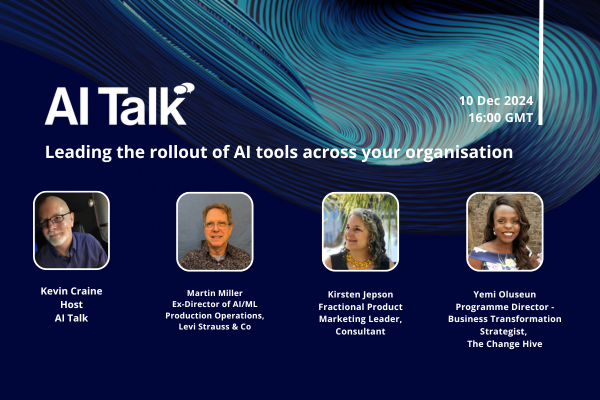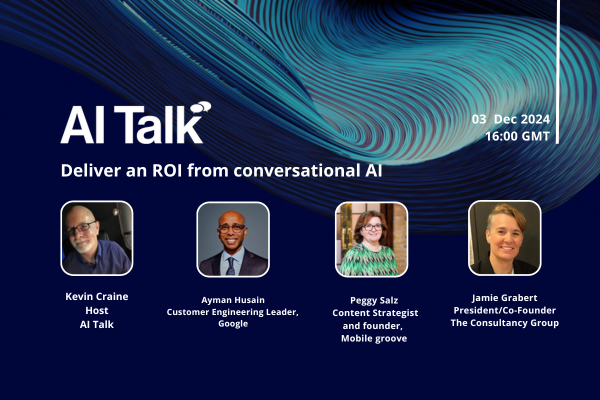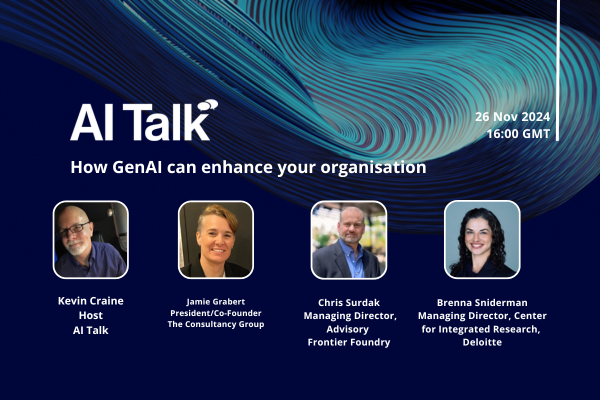AI: success through experimentation

Nishant Kumar Behl at OneAdvanced argues that leaders should continue to experiment with Artificial Intelligence, in order to evolve their understanding
Without a doubt, AI has revolutionised our current work environment, promising to continue advancing it into the future. It often displays remarkable precision and a high rate of accuracy, however, there are concerns that AI may be too influential, posing risks to our socio-political and economic frameworks.
At the same time, we are seeing case studies that spotlight AI’s unexpected and sometimes humorous errors – think about Amazon Alexa automatically ordering a $170 dollhouse and four pounds of cookies after a child asked the AI assistant about these products at home.
Cases like this can diminish confidence in this technology, opening a can of worms for more safety concerns, stringent regulations and deployment delays. Despite AI’s generally reliable outcomes, occasional errors draw disproportionate scrutiny, setting an unrealistic expectation for flawlessness.
This focus on the negative partly explains why nearly 80% of AI initiatives fail within their first year. The recent buzz around AI, and GenAI specifically, has inflated expectations, leading to disappointment when these standards are left unmet.
The flawed perfection of technology
Many indispensable software tools we rely on contain glitches, which are a natural part of code development. The internet is filled with resources to assist users in navigating bugs in popular office software by Apple and Microsoft, and this has become commonplace. Given our tolerance for issues in everyday software, why do we demand perfection from AI?
Fear is a significant factor, with concerns that AI could outperform humans, potentially making us redundant. For instance, while the legal sector shows a strong inclination towards adopting AI, the education sector appears to have more reservations.
Law firms have already recognised the potential for AI to accelerate repetitive, low-value processes such as standard contract writing and improve billing processes. Indeed, 68% of legal professionals say they are ready to embrace AI as a powerful tool to drive higher productivity and increased billing potential for higher profits.
Other sectors, such as education, are less focused on profit and are deriving a significant proportion of their success metrics from other areas, such as learner attainment and organisational culture around learning. For these, AI represents some serious concerns as learners submit essays produced using GenAI, with unchecked and inaccurate information. It can encourage laziness, with learners taking what AI produces at face value. In other sectors too, employers may be starting to implement GenAI for report writing and other content that was previously produced by talented employees.
The crucial thing to remember is that technology has the potential to outperform human intelligence. As technology evolves, it encourages us to elevate our capabilities. Combining human insight with AI can instead lead to extraordinary results. AI frees time, allowing us to focus on creative and satisfying tasks while it manages the more mundane work.
However, AI’s development and refinement depend on human enquiry and the unique perspectives and insights we provide.
Educational institutions’ concerns about AI potentially undermining the importance of student learning call for a much more collaborative approach. It’s important to explore how AI can still serve as a valuable asset without sidelining educational objectives. Through experimentation and innovation, we can discover AI solutions that genuinely benefit the education sector.
Using AI to its full potential will also require a renewed focus for educators to encourage and develop learners’ critical thinking skills based on a better understanding of how the data used is informing the AI output.
Ensuring successful AI rollout
While we’re starting to grasp AI’s role as a supportive partner in the workplace, the daunting aspect of AI implementation can overwhelm organisations, leaving them grappling with the technology rather than embracing a strategic approach. To ensure ongoing success and effectively integrate AI into their growth trajectory, organisations must carefully consider how it can enhance their operations.
As a groundbreaking technology, applying AI solutions across the board might be tempting, but achieving lasting success demands an entirely more thoughtful approach. This begins with understanding how AI is developed and its intended purposes. Users must first comprehend the problem they’re attempting to solve to determine if AI is indeed the optimal solution, avoiding being swayed by unnecessary features.
Discussions around AI and Machine Learning have been evolving, especially with such remarkable technologies like ChatGPT, MidJourney, and Firefly. These innovations have showcased the potential capabilities in most current chatbots, text generation, and text-to-image conversions.
This involves not replacing human roles but augmenting them by automating mundane tasks and providing swift, non-expert solutions where appropriate. This understanding forms the foundation of our ongoing explorations into practical AI applications in professional settings.
Amidst ongoing uncertainty about AI, it’s reassuring to know numerous trustworthy, ethical technology firms are crafting secure, responsible, and compliant AI-driven products. These companies prioritise long-term value over fleeting excitement and engage with customers to understand their needs, assessing if AI can effectively address their challenges before recommending AI-centric strategies.
Combining AI with a strategic approach
Attempting to predict the future path of rapidly advancing technology is notoriously challenging. Instead, assessing an organisation’s current position enables it to set realistic goals for AI integration. Leaders in any organisation are tasked with strategising, posing relevant questions, guiding, and planning. T
his leadership approach is crucial for AI, prompting businesses to thoughtfully approach any projects, ask impactful questions, and create effective plans that enable engineers to deliver AI solutions tailored to their needs.
Experimentation with AI tools and solutions is encouraged, acknowledging that innovation involves both setbacks and breakthroughs. At the same time, organisations must be customer-driven, delivering reliable solutions that streamline processes and enhance usability and productivity.
Instant successes are rare, and adjusting our expectations allows AI to evolve towards providing sustainable, long-term value, benefiting everyone involved.
Nishant Kumar Behl is Director of Engineering at OneAdvanced
Main image courtesy of iStockPhoto.com and Hispanolistic

Business Reporter Team
Most Viewed
Winston House, 3rd Floor, Units 306-309, 2-4 Dollis Park, London, N3 1HF
23-29 Hendon Lane, London, N3 1RT
020 8349 4363
© 2024, Lyonsdown Limited. Business Reporter® is a registered trademark of Lyonsdown Ltd. VAT registration number: 830519543





